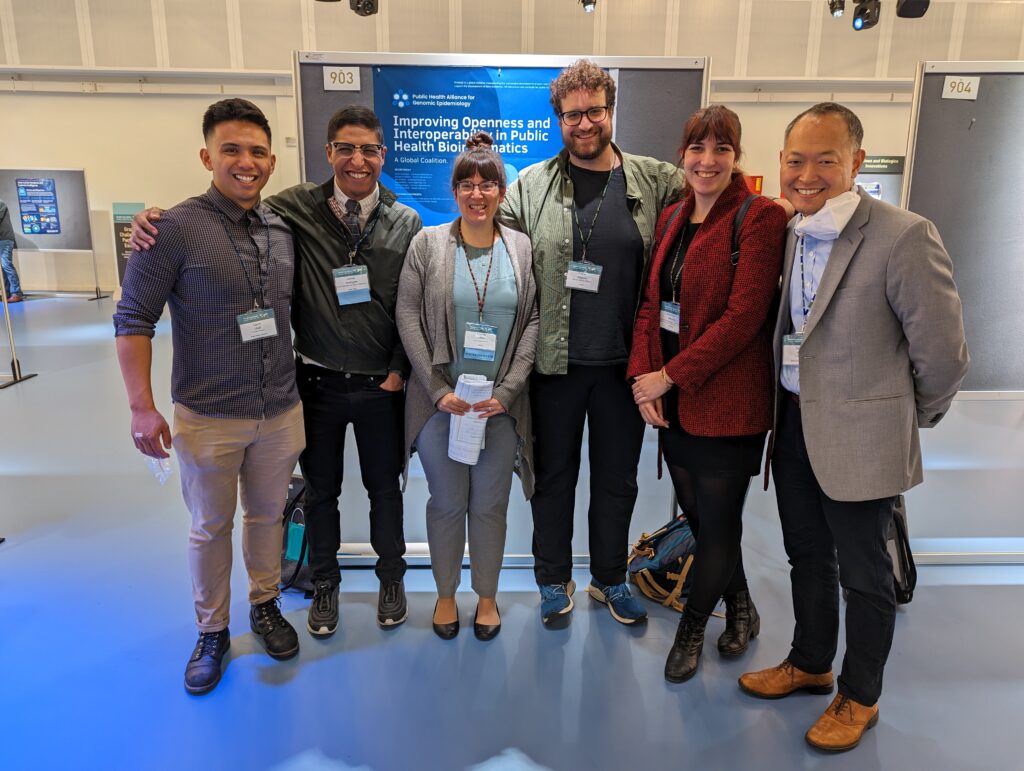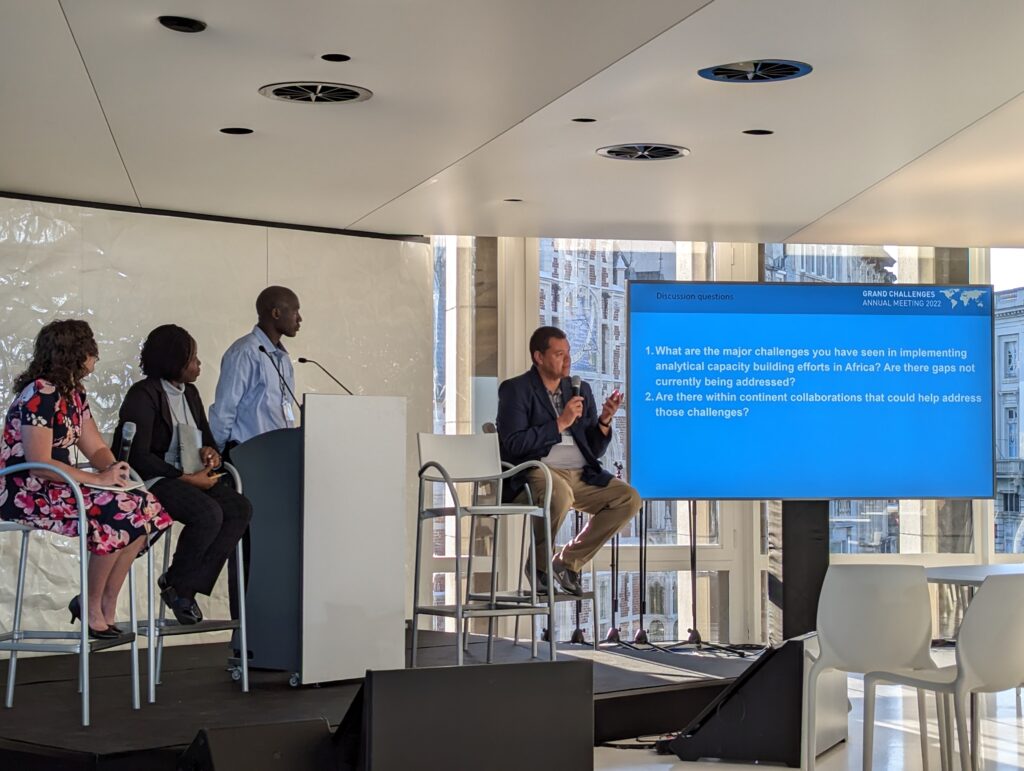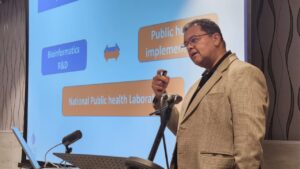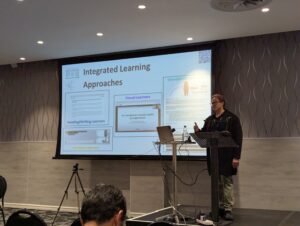The Grand Challenges annual meetings provide a platform for discussing ways to address global health and developmental challenges. These meetings have been held in 11 different countries dating back as early as 2005 and in October 2022, marked the eighteenth meeting which took place in Brussels, Belgium. These meetings are crucial as they promote collaboration and partnerships across country borders and continents and to improve wellbeing among people.

The Public Health Alliance for Genomic Epidemiology (PHA4GE) had the opportunity to present at the last meeting. PHA4GE working groups provided a poster and a short presentation which described how the consortium started in 2019 and the activities that working groups are busy with.
The links and description to the posters are available below:
The Secretariat Working Group: Improving openness and interoperability in Public Health Bioinformatics
There is plenty of opportunity for innovation in sequencing and biorepositories capabilities globally. The formation of the Public Health Alliance for Genomic Epidemiology (PHA4GE; www.pha4ge.org), in 2019, was predicated on the need to champion the development of open source, reproducible bioinformatics, and to support the development of bioinformatic and data standards, architectures and methods for public health. This can be seen in the PHA4GE goals that include reducing the barrier to entry for routine sequencing; promoting standardization and reproducibility of workflows; advancing the usage of open data and open source in public health; improving surveillance and outbreak response; promoting private/public partnerships to drive innovation; development of global public health bioinformatics workforce and empower public health laboratories to analyze and govern their own data. It is also PHA4GE’s mission to establish global consensus standards; to document and share best practices; to improve the availability of critical bioinformatic tools and resources; and to advocate for greater openness, interoperability, accessibility, and reproducibility in public health bioinformatics. During the COVID-19 pandemic the various working groups have aligned their global efforts to develop methods that can assist in Public health intervention (https://pha4ge.org/resources/)

PipeViz: Bioinformatics pipelines and data visualization working group: Integrating Bioinformatics solutions to improve Public Health
The development and implementation of low cost, high throughput genomic sequencing has been a game changing innovation for global public health and the prevention and management of infectious diseases. As pathogen sequencing becomes increasingly routine, access to flexible, long-term bioinformatics capacity has emerged as an essential need for public health laboratories worldwide. Current approaches for developing public health Bioinformatics software are highly fragmented, relying primarily on Government platforms and academic software development, frequently to the exclusion of interested participants. The Public Health Alliance for Genomic Epidemiology (PHA4GE) is a community of practitioners from academia, public health bodies and private industry focused on the establishment of an open source, community-supported environment for bioinformatics software development, installation, validation, and support to promote global public health.

Infrastructure Working Group: Framework for compute infrastructure for pathogen genomics labs.
In the past decade pathogen genomics has matured from its origins in research into a tool for diagnostics and public health. As an increasing number of public health and veterinary laboratories embrace pathogen sequencing, sequence analysis and bioinformatics they find themselves needed IT infrastructure that many institutions are not familiar with. Understanding the IT requirements and available infrastructure options is paramount to effectively and timely deployment of these news methods. The PHA4GE Infrastructure Working Group was formed in December 2019 to provide recommendations on available and appropriate infrastructure choices for pathogen genomic labs. We present here a framework that can assist emerging pathogen genomics labs in their IT infrastructure decision making.
Data Structure Working Group: Improving the structure of pathogen genomics data for effective public health action
Genomic sequencing and bioinformatic analysis are powerful tools for understanding the prevalence, diversity, and distribution of microbial pathogens (e.g. bacteria, viruses, parasites, fungi), as well as how they are transmitted to humans (from animals, environments or other humans), how they evolve, and how they cause outbreaks. An example of the utility of genomic sequencing for public health can be seen during the COVID-19 pandemic when genomic sequencing and surveillance were used to provide data for the development of diagnostics and vaccines, to track variants of concern, to identify and resolve outbreaks at local and global levels, and to understand the origins of the virus. Owing to its demonstrated utility for public health surveillance and decision-making, the WHO have recommended that pathogen genomic surveillance be a key part of their strategic pandemic preparedness plan. Within PHA4GE, the Data Structures Working Group (DSWG) focuses on developing specifications, tools, and protocols to help public health labs standardize, harmonize, and organize genomics-based information so that datasets are more interoperable between labs, organizations, databases and platforms.

Compiled by Gabrielle Arendse, PHA4GE intern



